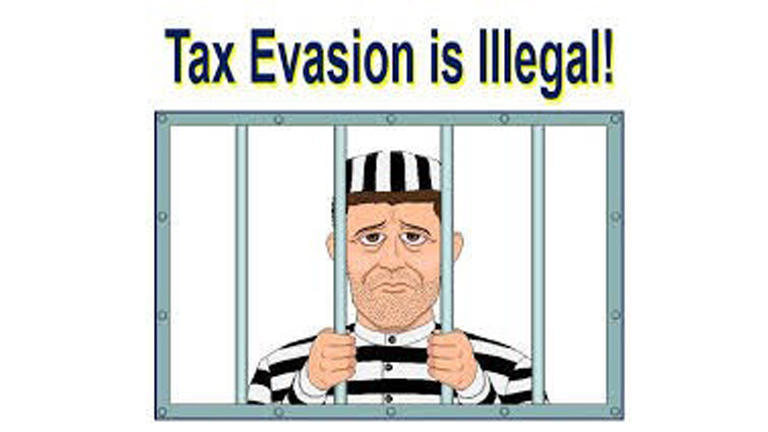What is Tax evasion
Tax evasion is an illegal practice where a person, organisation or corporation intentionally avoids paying his true tax liability. Those caught evading taxes are generally subject to criminal charges and substantial penalties.Definition courtesy Investopedia.com
A Firstline Securities Limited Blog by: Ahamad Hosein
What is Money Laundering?
The term “money laundering” refers to the activities and financial transactions that are undertaken specifically to hide the true source of the money.
Tax evasion, public corruption, fraud and drug trafficking are all examples of the types of crimes that revolve around money and in terms money laundering.
Money laundering is a complex crime involving sophisticated details, involving numerous financial transactions throughout the world; such investigation will involve following the money.
Money laundering creates an underground, untaxed economy that harms our country economically, illegally, politically and socially. This is a global threat that erodes financial, economic, social welfare, and political systems.
What is the link between Tax Evasion and Money Laundering?
Per the U.S. State Department.
Excerpt from the Bureau of International Narcotics and Law Enforcement Affairs 2014 International Narcotics Control Strategy Report (INCSR) Report:-
“Trinidad and Tobago (T&T)’s close proximity to drug producing countries, stable economy, and developed financial systems make it a target for criminals looking to launder money.
Proceeds from drug trafficking, illegal arms sales, fraud, tax evasion, and public corruption are the most common sources of laundered funds. Criminal assets laundered in T&T are derived from domestic and international criminal activity.
Drug trafficking organisations and organised crime entities, operating locally and internationally, control the majority of illicit proceeds moving through the country.”
Per Anti-money laundering and counter-terrorist financing measures, Trinidad and Tobago Mutual Evaluation Report June 2016 by CFATF.
In the Executive Summary, section 2 states.
“The Financial Intelligence Unit of Trinidad and Tobago (FIUTT) produced information to show that the predicate offences of Tax Evasion, Fraud and Drug Trafficking are some of the highest generators of the proceeds of crime as a result of the suspicious transaction reports (STRs)/ suspicious activity reports (SARs) submitted to the FIUTT.”
“Section 25. Board of Inland Revenue: The BIR is considered to be a law enforcement authority under the POCA and is responsible for investigating tax offences along with their regular duties as specified under the Income Tax Act and other relevant legislation.”
“Section 121. The Criminal Tax Division (CTD) is a Unit within the BIR that conducts investigation into ML that would have arisen as a result of IRs received from the FIUTT. The CTD considers all offences under the Income Tax Act to be predicate offences under the POCA.
The Assessors were informed that 63 persons were charged for tax offences in 2014, all of which are currently before the Court. The reason advanced for these matters being still before the Court is the lack of priority given to tax offences by the Courts in the jurisdiction.
The CA indicated that it is the intention of the CTD that once these matters are adjudicated upon, criminal charges of ML will be brought against the individuals.”
Per the OECD
On July 3, 2017, the EU 4th Anti-Money Laundering Directive became fully effective. The European Commission published its supranational risk report.
In the report, Trinidad and Tobago is listed by OECD as the only jurisdiction failing to make sufficient progress towards satisfactory implementation of the tax transparency standards The OECD Global Forum on Transparency and Exchange of Information for Tax Purposes released its list of non-cooperative jurisdictions in the run-up to the meeting of G20 leaders in Hamburg on 7 and 8 July.
As part of an initial review, 15 countries were listed as having less than satisfactory ratings. The Global Forum established a fast-track review process to evaluate the progress of these countries prior to the G20 summit.
Following this procedure, 13 countries were upgraded to being fully compliant with international tax transparency standards, 1 country was upgraded but classified as only being partially compliant.
However, the OECD listed Trinidad and Tobago as being less than compliant and therefore on the so-called “blacklist” or “tax havens”.
The OECD has been criticised by NGOs such as Oxfam on the grounds that it implies that only 1 country in the world is a “tax haven” or is failing to be fully transparent on tax matters.
What action is being taken?
As Published in the Guardian newspapers on Wednesday, February 15, 2017
Laws to catch white-collar criminals coming soon.
Attorney General Faris-Al Rawi has vowed to roll out a “number of reforms” that will not require a three-fifths majority to be passed in Parliament soon, saying “enough is enough” and the country’s laws need to start working for citizens who have been expressing concern about crime, corruption and fraud.
Crime Stoppers International recognises that illicit trade is a growing problem worldwide, be it smuggling, counterfeiting, or tax evasion.



